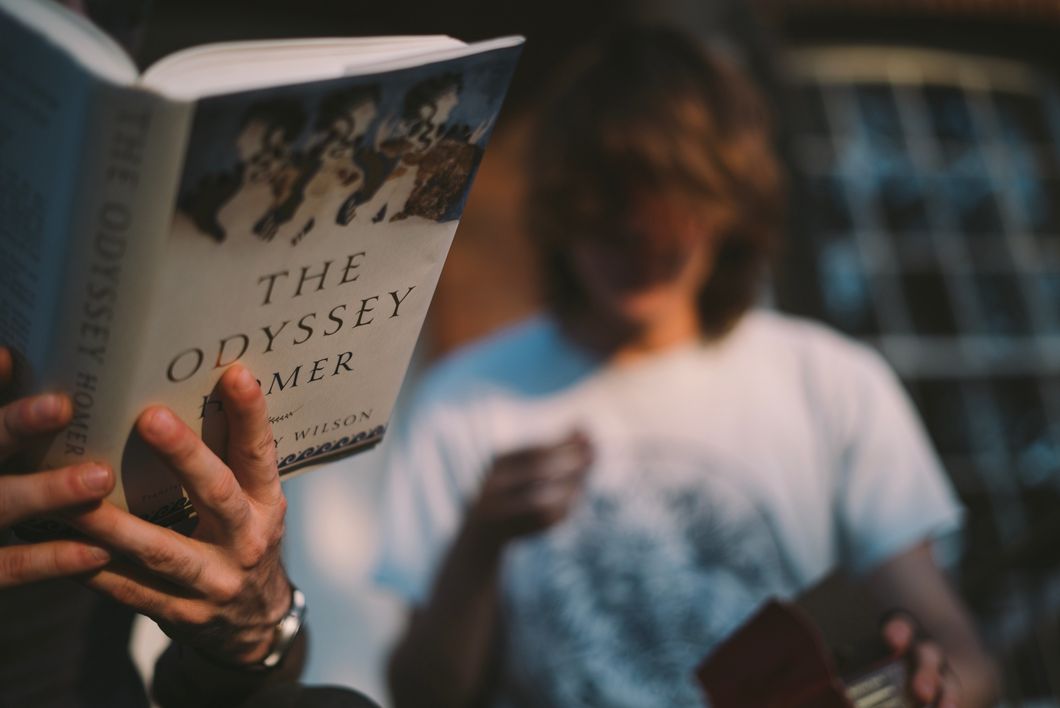When I went to purchase books for my classes this quarter, my roommates joined me. As I pulled books off the shelves for my history class on classical Greece, one of my roommates said, "Why are people so obsessed with the Greeks?"
My other roommate responded, "I don't know. Poems, Homer, philosophy, stuff like that."
"All of that stuff came from other places. I guess white people just like studying white people," my first roommate said. She sighed and shook her head.
I was unsure of how to respond and I was unable to articulate my thoughts into words, so I said nothing. I listened. I thought about what she said. Several aspects of her comments were problematic.
I want to focus on this comment: "All of that stuff came from other places." Okay.
On the second day of class, my professor began discussing a scholarly theory regarding the Homeric poems the "Iliad" and the "Odyssey." She mentioned that the poems draw from influences of the Hittites, Anatolia, and Mesopotamia. Additionally, the poems share similarities with the Mesopotamian poem the "Epic of Gilgamesh," for which she provided examples.
Although these similarities are intriguing, are they really that surprising? Cultures often borrowed from other cultures throughout history. Interaction between cultures through trade, invasion, and conquest resulted in transmission of cultural, religious, and linguistic ideas. Today, cultures continue to borrow from each other.
The pictographic scripts of Bronze Age Greece were inspired by Egyptian hieroglyphs. The 24 letter Greek alphabet developed during the Iron Age was borrowed from Phoenician. However, it is not like the Greeks "stole" ideas from other cultures.
But, if we're going to act like they did, then let's note that the Japanese, the Koreans, and the Vietnamese "stole" Chinese script and culture. Cultural, religious, and linguistic aspects including Chinese characters and Buddhism (which originated in India and spread to China through the Silk Road; so hey, the Chinese "stole," too) were utilized and integrated by the Japanese, the Koreans, and the Vietnamese.
Chinese characters continue to be used in the modern written Japanese and Korean scripts (Chinese characters are called kanji in Japanese and hanja in Korean).
We might as well also say the Romans "stole" the stories of Greek mythology, copying them as their own and only changing the names of the gods and goddesses.
Ancient Roman architecture borrowed aspects of Greek and Etruscan architecture.
Cultures are influenced by others as they borrow from each other. That's how they learn and develop. This doesn't make one culture superior to another. Every culture is valid.
















